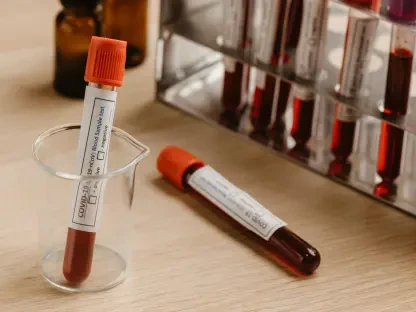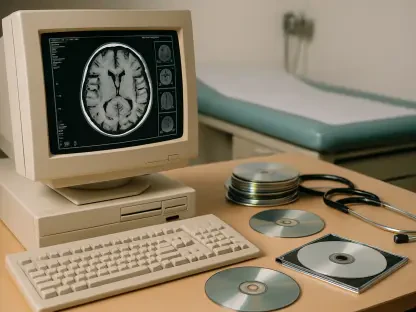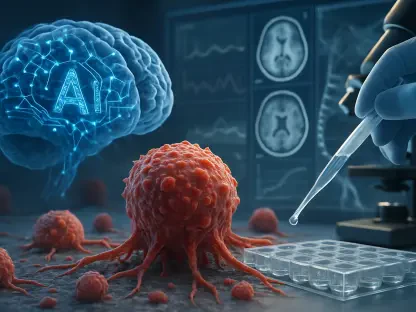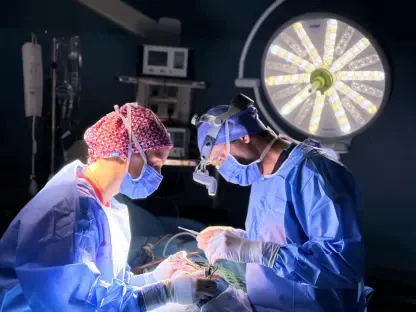In the heart of Hull city center, a groundbreaking development has emerged that promises to redefine the landscape of local healthcare and urban vitality. The recent opening of a state-of-the-art Community Diagnostic Centre (CDC) on Albion Street marks a significant milestone for residents of Hull and the East Riding. This cutting-edge facility, brought to life through a dynamic collaboration between Hull City Council, Hull University Teaching Hospital, and NHS England, stands as a beacon of hope for improved medical access. Designed to deliver up to 150,000 additional diagnostic appointments annually, the center addresses critical health needs by offering advanced testing for conditions like cancer, heart disease, and respiratory issues. Beyond its medical mission, the project intertwines with broader goals of economic revitalization and cultural preservation, setting a new standard for how infrastructure can serve multiple community purposes with remarkable impact.
Revolutionizing Access to Diagnostic Services
The introduction of the Community Diagnostic Centre in Hull represents a transformative leap in healthcare accessibility for the region. Equipped with sophisticated tools such as MRI, CT scanning, X-ray, and ultrasound services, the facility ensures that residents no longer face prolonged waits or distant travel for essential diagnostics. Staffed by expert clinicians, the center is poised to alleviate significant pressure on acute hospitals by handling a substantial volume of tests locally. This shift not only streamlines the process for patients seeking timely diagnoses but also enhances the overall efficiency of the healthcare system in the area. The capacity to conduct thousands of additional appointments each year means that serious conditions can be detected and addressed sooner, potentially saving lives and improving outcomes for countless individuals who rely on prompt medical intervention for their well-being.
Moreover, the strategic location of the CDC in the city center underscores its role as a cornerstone of community health. By placing such a vital resource within easy reach, the facility caters to a diverse population, including those who might struggle with mobility or access to transportation. The emphasis on accessibility extends beyond physical proximity, as the center’s design and operations prioritize patient comfort and convenience. This development reflects a broader commitment to equity in healthcare, ensuring that high-quality diagnostic services are available to all, regardless of socioeconomic status or geographic barriers. As a result, the facility stands to reduce disparities in health outcomes, fostering a healthier, more resilient community where early detection and treatment become the norm rather than the exception for residents.
Driving Economic Growth and Urban Renewal
Beyond its healthcare contributions, the Community Diagnostic Centre serves as a catalyst for economic revitalization in Hull’s city center. As part of the ambitious Albion Square regeneration program, the facility is expected to increase foot traffic in the area, breathing new life into local businesses. The influx of patients, staff, and visitors creates a ripple effect, boosting commerce and encouraging further investment in the urban core. Additionally, the project has already generated around 100 local jobs, providing employment opportunities and contributing to the economic stability of the region. This dual focus on health and economic growth highlights how strategic infrastructure can address multiple community needs simultaneously, creating a vibrant hub where well-being and prosperity intersect in meaningful ways.
The economic benefits of the CDC are further amplified by its alignment with long-term urban development goals. Council leaders have expressed optimism about the facility’s potential to mirror the positive impacts seen in other regions with similar projects, where health centers have spurred sustained growth. The timely and on-budget completion of the center, achieved through effective collaboration with contractors, demonstrates a model of efficiency that could inspire future initiatives. This success story not only strengthens confidence in public-private partnerships but also positions Hull as a forward-thinking city capable of balancing immediate community needs with visionary planning. The increased activity in the city center promises to reshape the area into a dynamic space where economic and social progress go hand in hand.
Preserving Heritage Amid Modern Progress
An equally compelling aspect of the CDC’s establishment is its dedication to honoring Hull’s cultural and historical legacy. During the facility’s inauguration, a poignant gesture was made with the reburial of a time capsule, updated with modern artifacts alongside historical items. This act symbolizes a connection between the city’s past and its future, encapsulating the spirit of progress while respecting tradition. The original contents of the capsule, now showcased at a local history center, offer a tangible link to Hull’s heritage, ensuring that the community’s story remains a living part of its identity. Such initiatives reflect a thoughtful approach to development, where innovation does not come at the expense of cultural roots but rather enhances them through meaningful integration.
Another striking example of this balance is evident in the restoration of a historic artwork displayed in the CDC’s reception area. The meticulous salvage and replication of tiles from an iconic mural originally housed in a former building on the site demonstrate a commitment to preserving local art and history. This restored piece serves as a visual reminder of Hull’s past, welcoming visitors to the center with a sense of continuity amid cutting-edge surroundings. By weaving these cultural elements into the fabric of a modern healthcare facility, the project underscores the importance of community identity in urban renewal. It creates a space that not only heals bodies but also nurtures a shared sense of belonging, proving that progress can be both forward-looking and deeply rooted in history.
Building a Legacy of Community Impact
Reflecting on the journey of the Community Diagnostic Centre, its completion marked a moment of pride for Hull, showcasing what collaborative effort and vision can achieve. The facility’s ability to deliver critical healthcare services while reducing strain on hospitals stands as a testament to strategic planning and dedication. Its role in sparking economic activity through job creation and increased city center vibrancy highlights a broader impact that touches lives beyond the medical realm. Moreover, the careful preservation of cultural artifacts during its development ensures that Hull’s heritage is celebrated rather than overlooked. Looking ahead, the success of this initiative offers a blueprint for future projects, suggesting that integrated approaches to health, economy, and history can yield lasting benefits. As communities nationwide grapple with similar challenges, Hull’s example encourages investment in multifaceted infrastructure that prioritizes comprehensive well-being and sustainable growth for generations to come.









